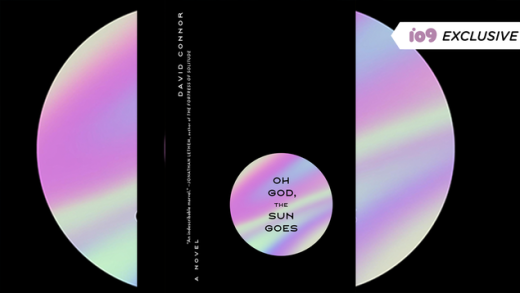Let’s face it, we’re all a little bit self-obsessed. Why else would BuzzFeed quizzes be so popular? But beyond what flavour ice cream you are, or which two Harry Potter characters mashed together make up your personality, there are more serious ways of studying your own personality, like books on personality types. These can help not just with understanding yourself but also understanding others and being a better friend, son or daughter, father or mother, brother or sister. It can even help with writing fictional characters.
Because, of course, what’s the first place we turn to when we want to learn about something? Books. Anne Bogel has an excellent book which introduces personality types, called Reading People, so if you need a primer on the different ways people have come up with to understand humans, that’s a great place to start. Below are some further recommendations for books on personality types, with apologies for the lack of diversity.
Part of the reason for that lack of diversity, other than the usual societal and publishing issues, may be that a lot of these personality typing systems were developed by academics, using students as their research subjects – and those have historically skewed white, affluent, and, for a long time, male.
The Enneagram
The word Enneagram comes from the Greek word ennea, meaning nine. It divides people up into, you’ve guessed it, nine personality types, and it’s been around since ancient times. It has its roots in Sufi wisdom, and travelled through South America to reach us, so it hasn’t always been the obsession of white people.
The Enneagram Made Easy by Elizabeth Wagele and Renee Baron
This was my first book about the Enneagram, and it demystified it for me and made it easy to understand. There are lots of visual aids and cartoons as well as quizzes for each of the nine types to help you figure out where you fit.
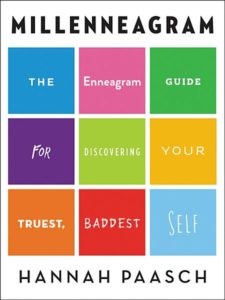 Millenneagram: The Enneagram Guide for Discovering Your Truest, Baddest Self by Hannah Paasch
Millenneagram: The Enneagram Guide for Discovering Your Truest, Baddest Self by Hannah Paasch
One of the newest offerings about personality books, the Milleneagram is a book which will look great on your shelf, but also doesn’t take itself too seriously. Hannah Paasch also hosts a podcast about the Enneagram, and she’s passionate about our understanding ourselves better through the system. “Only from this position of wholeness, rootedness in who we are, what we believe, and what kind of story we are writing, will we be able to act bravely for the sake of justice and humanity – to approach our f*cked-up world with the grounded courage it asks of us.”
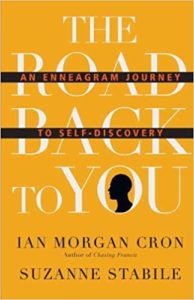 The Road Back to You: An Enneagram Journey to Self-Discovery by Ian Morgan Cron and Suzanne Stabile
The Road Back to You: An Enneagram Journey to Self-Discovery by Ian Morgan Cron and Suzanne Stabile
Many Enneagram enthusiasts speak enthusiastically about this book. It’s definitely got a bit of a Christian angle, so if that’s your thing, it’s a great place to start. It will help you figure out why you’re stuck in the same ruts, and what you can do about it.
For more books on the Enneagram, see 19 Enlightening Books on the Enneagram of Personality
You might also be interested in: The Enneagram Types of 99 Fictional Characters
The Myers Briggs Type Indicator
Myers Briggs is a personality typing system which labels people according to whether they are an introvert or an extrovert, someone who processes the world according to the traditional senses or to intuition, someone who makes decisions based primarily on thoughts or feelings, and someone who prefers to plan or be spontaneous. There are sixteen types, all with some combination of the letters E/I, N/S, F/T, P/J.
 What Type Am I?: Discover Who You Really Are by Renee Baron
What Type Am I?: Discover Who You Really Are by Renee Baron
Written by one of the co-authors of the introductory primer of The Enneagram Made Easy, this one has a lot of the same features – cartoons, quizzes, and the like – to demystify this typing system.
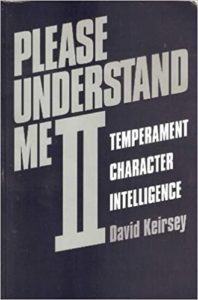 Please Understand Me II by David Keirsey
Please Understand Me II by David Keirsey
This is one of the classics, first written in 1978, and it’s a little heavy, but if you want to take a deep dive into the MBTI, it’s a good place to go. It brings a Jungian perspective to the sixteen types and groups them into four archetypes.
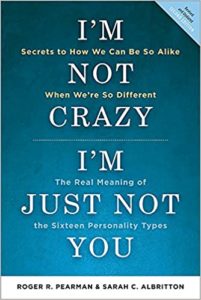 I’m Not Crazy, I’m Just Not You: The Real Meaning of the 16 Personality Types Paperback by Roger R Pearmna and Sarah C Albritton
I’m Not Crazy, I’m Just Not You: The Real Meaning of the 16 Personality Types Paperback by Roger R Pearmna and Sarah C Albritton
For more books on Myers Briggs, see 10 Enlightening Books on Myers-Briggs Personality Types.
You might also be interested in The Myers-Briggs Types of 202 Fictional Characters.
Other Personality Books
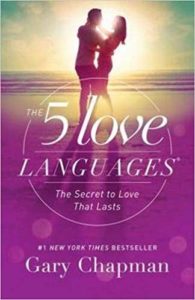 The Five Love Languages by Gary Chapman
The Five Love Languages by Gary Chapman
This book has helped countless people understand the dynamics of their romantic relationships and friendships. It argues that people give love in the way they like to receive it, but that’s not the same for everyone, which can lead to mismatched expectations. Gary Chapman groups expressions of love into five types: words of affirmation, physical touch, acts of service, quality time, and gifts. It’s a great tool for helping you build stronger relationships of all kinds.
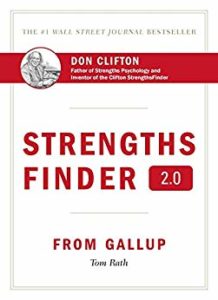 Strengths Finder 2.o by Tom Rath
Strengths Finder 2.o by Tom Rath
This is used a fair amount in the professional world and can help you figure out what the right career is for you. You take a test online, and the result you get is five different strengths – from intellection to communication to winning over others – that you can lean into in your work and volunteering as well as your personal life
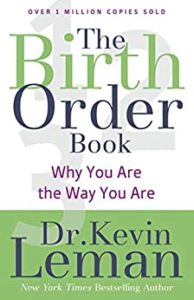 The Birth Order Book: Why You Are The Way You Are by Dr. Kevin Leman
The Birth Order Book: Why You Are The Way You Are by Dr. Kevin Leman
There’s no doubt that your position in your family affects your childhood profoundly, which in terms has ripple effects for your development and adult personality. This book goes into all of that and even features a guess-the-birth-order quiz and a feature on where past presidents fell in their own families.
By the time you’re done reading all of these books on personality types, you should have a pretty good understanding of yourself and those around you – but be warned, you may become addicted to typing characters in every book you read!



